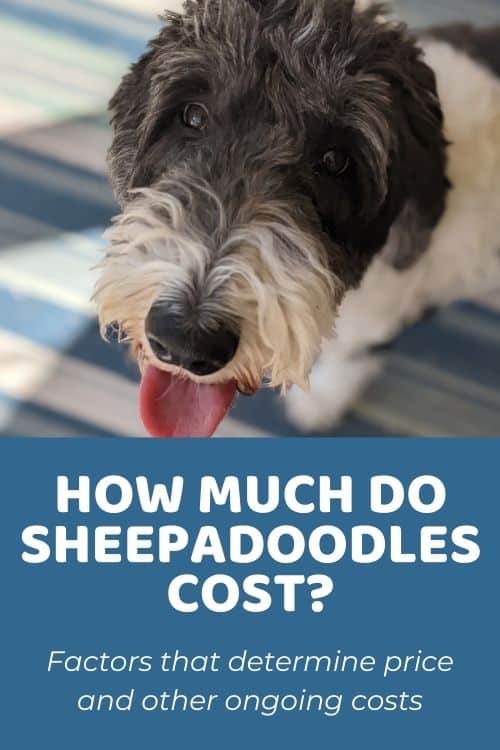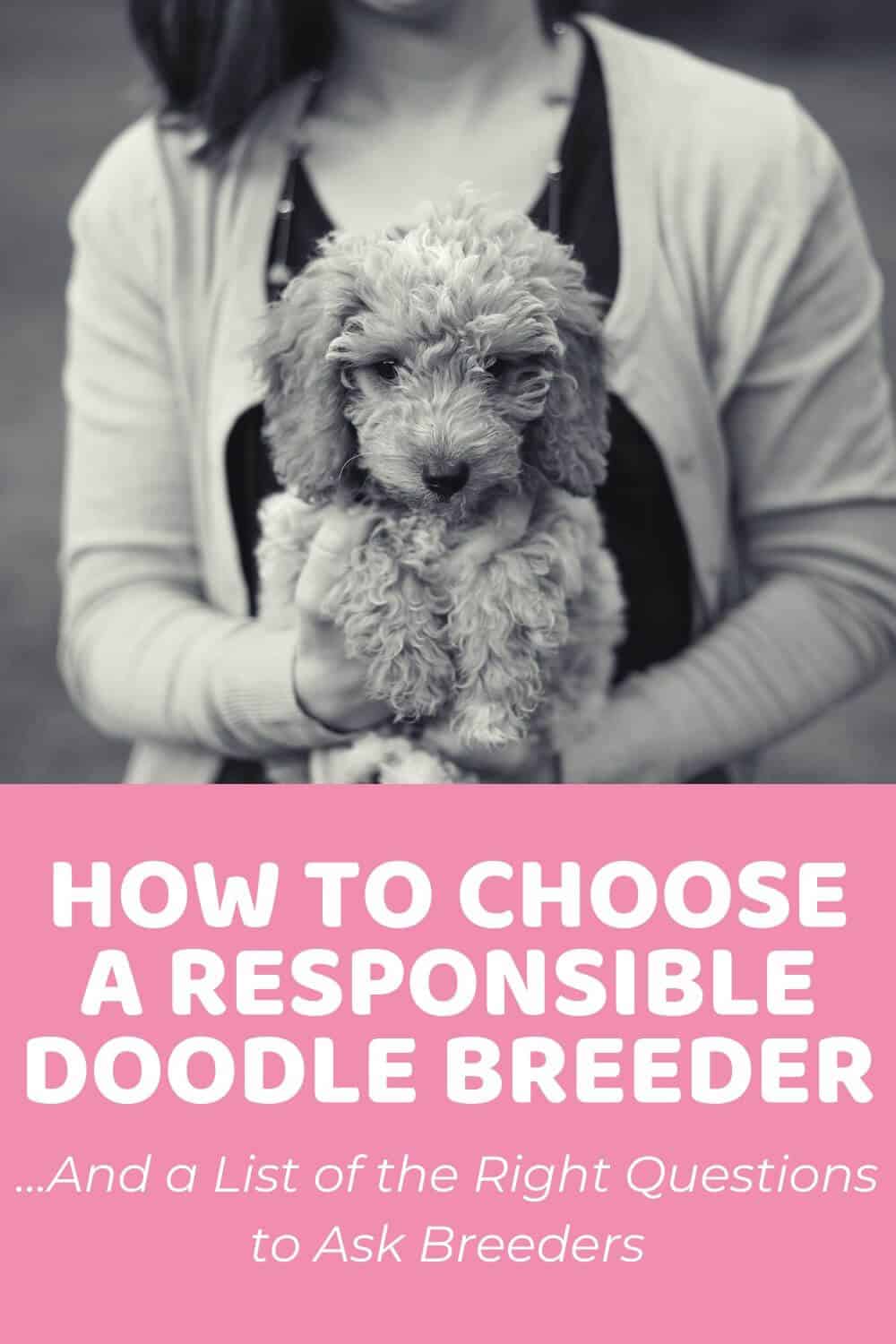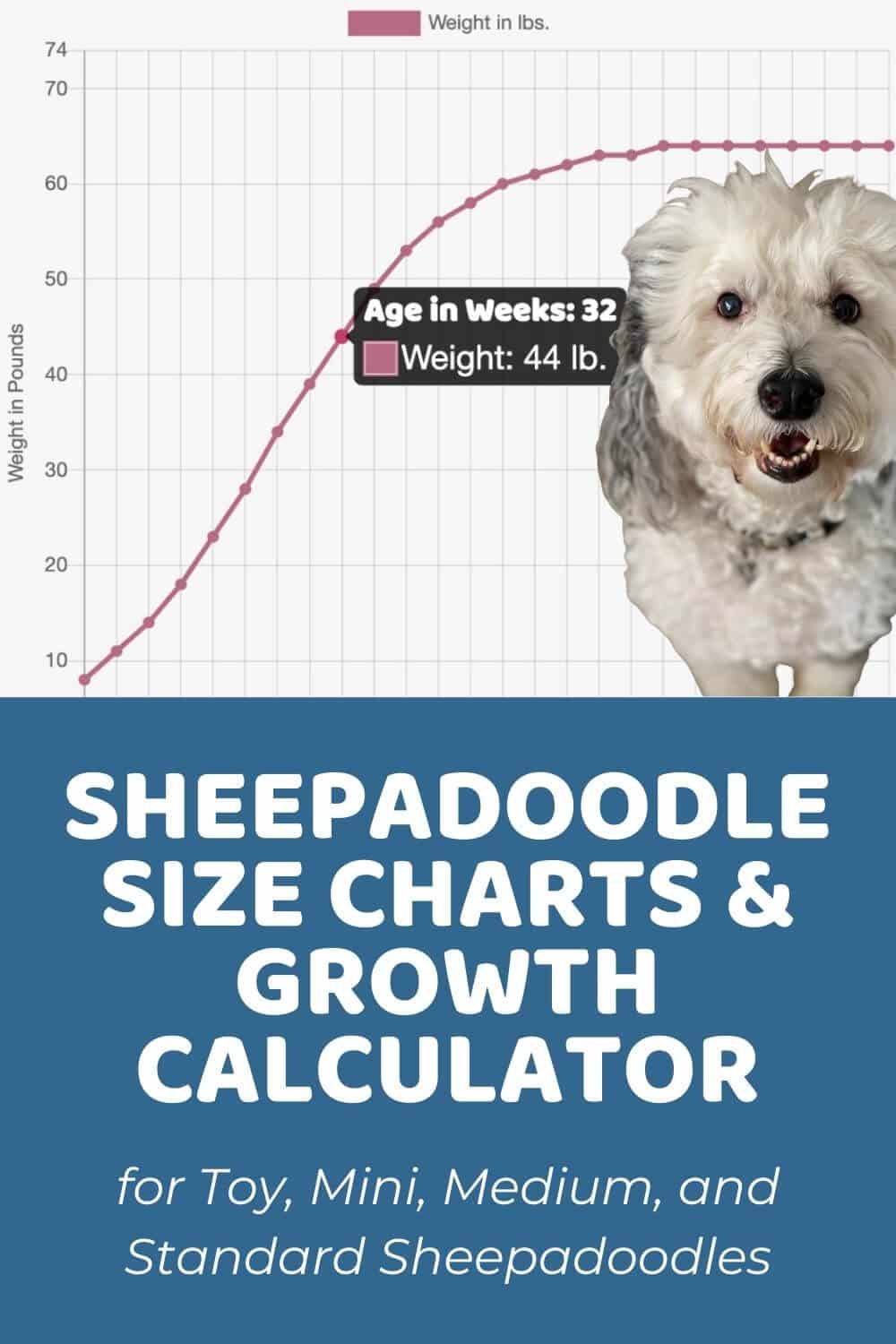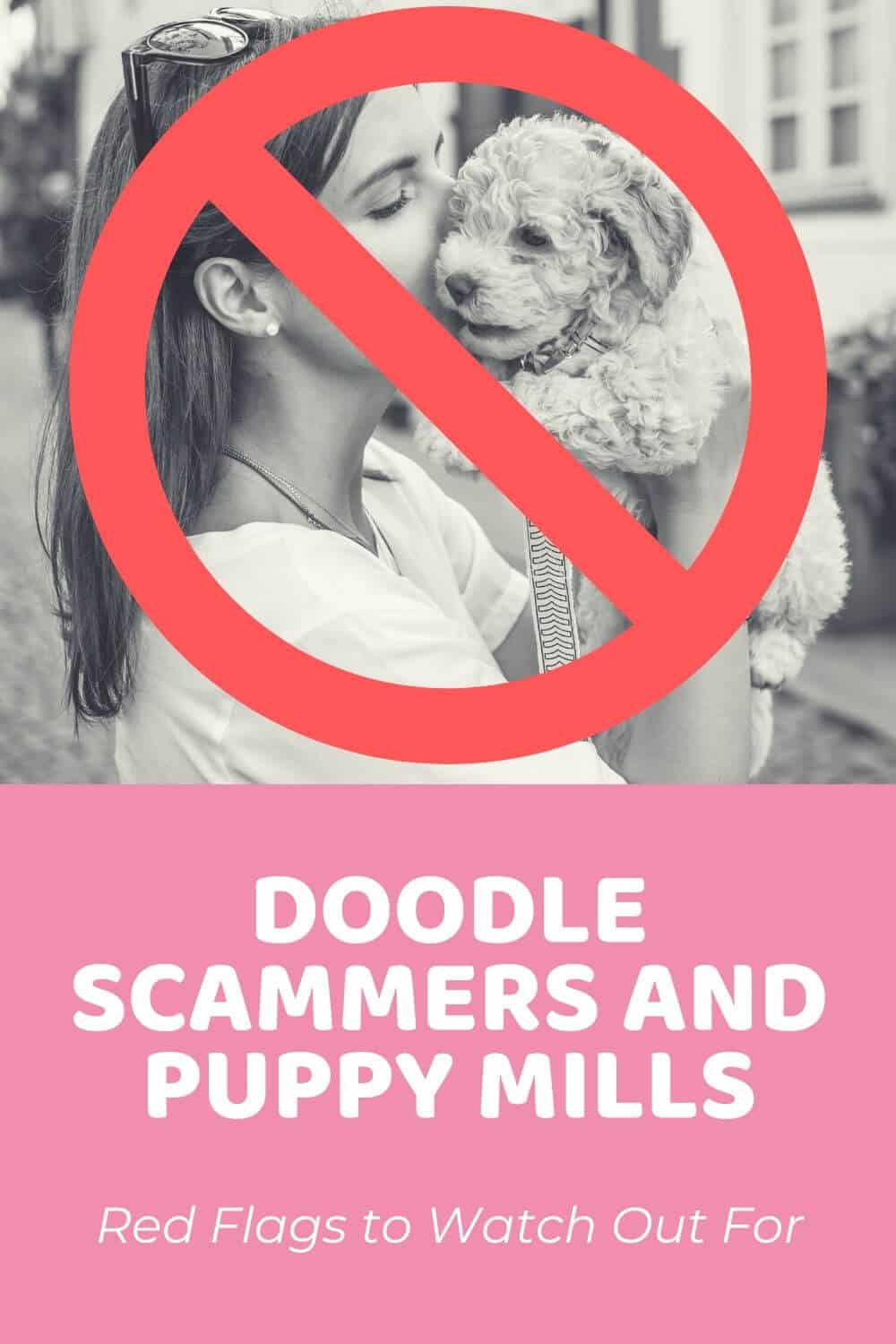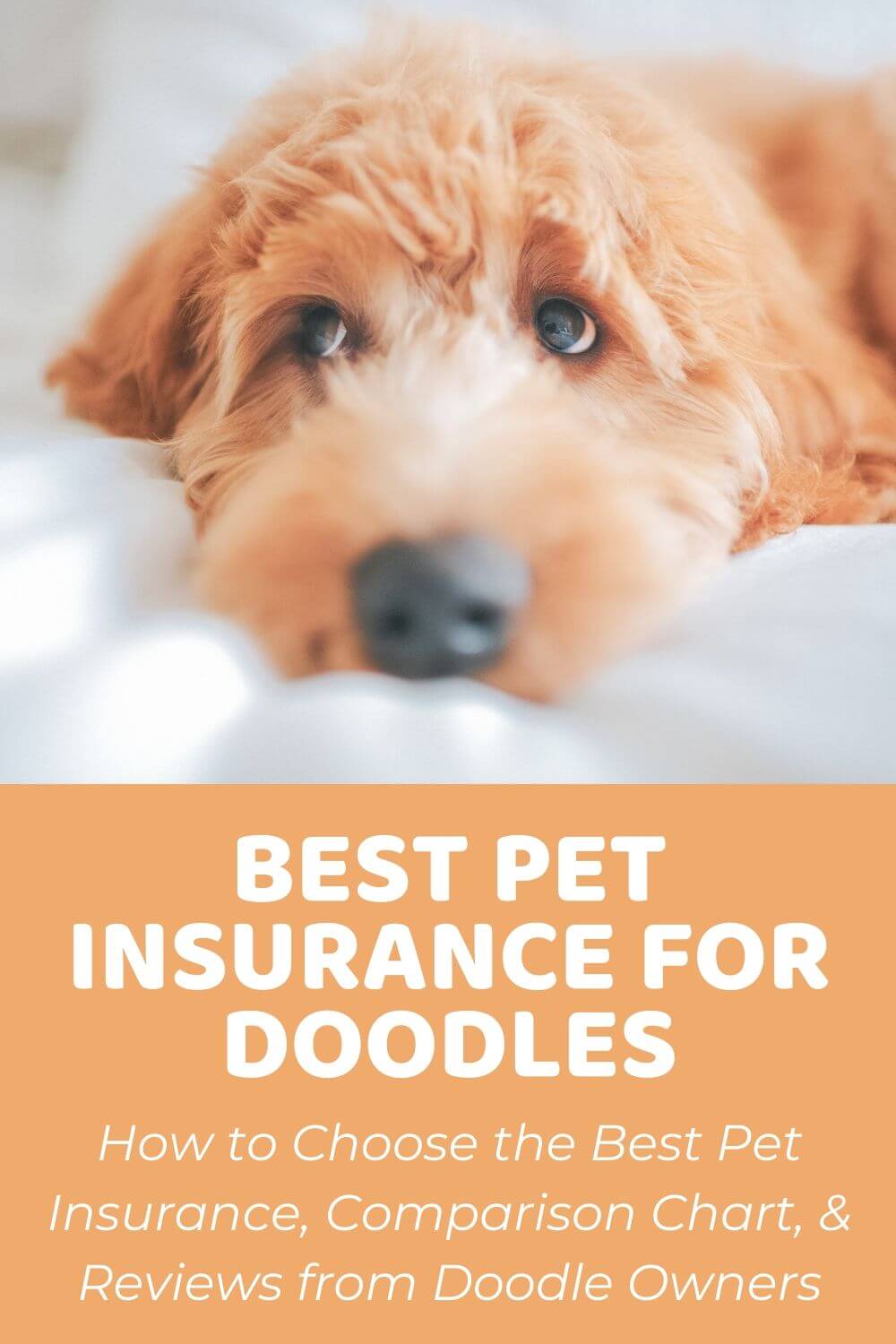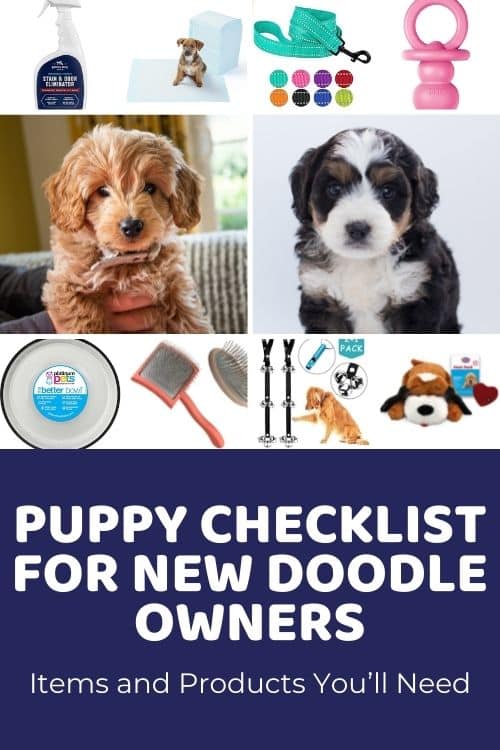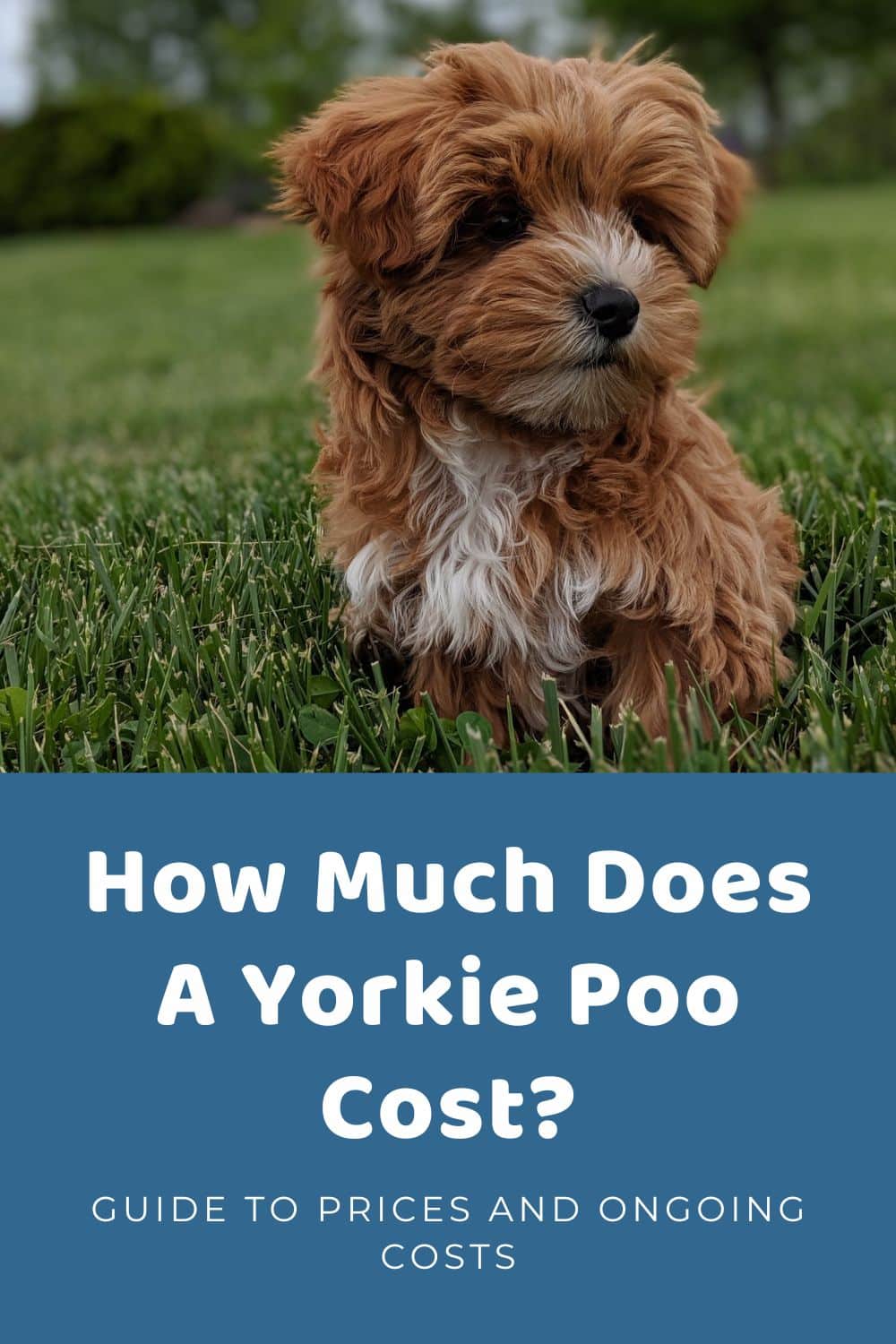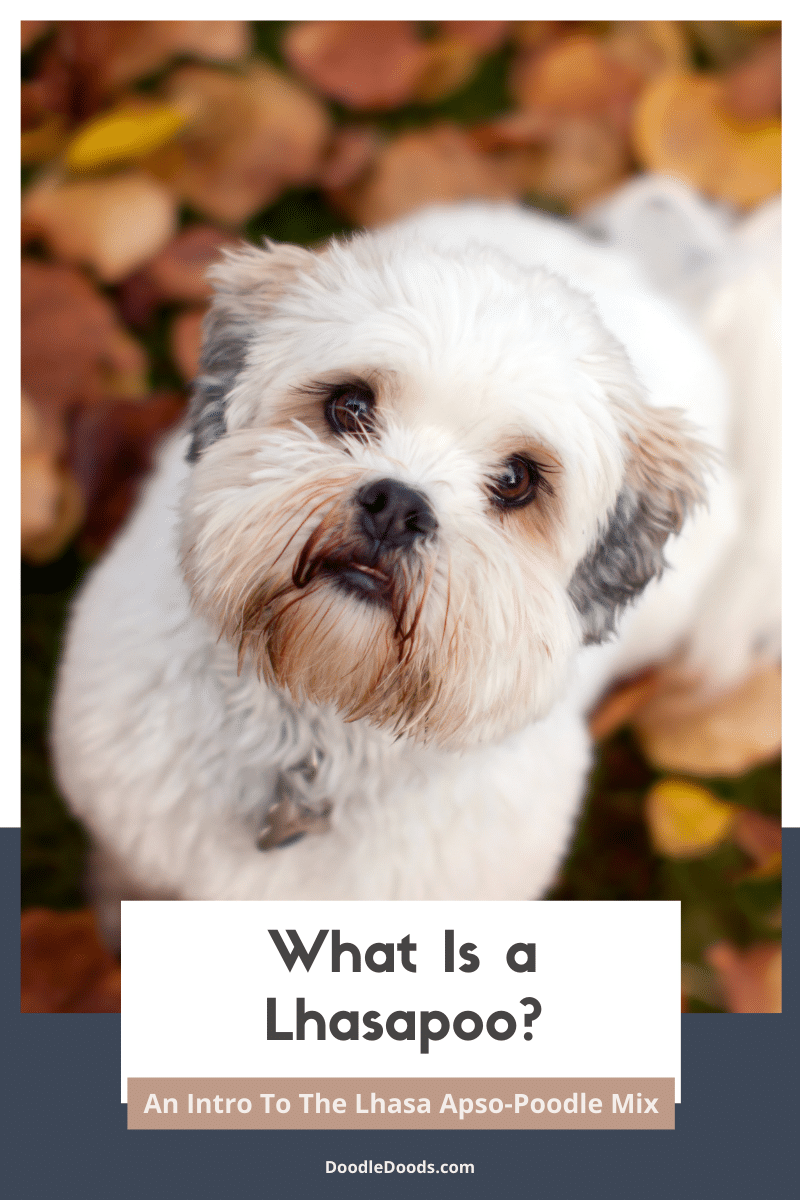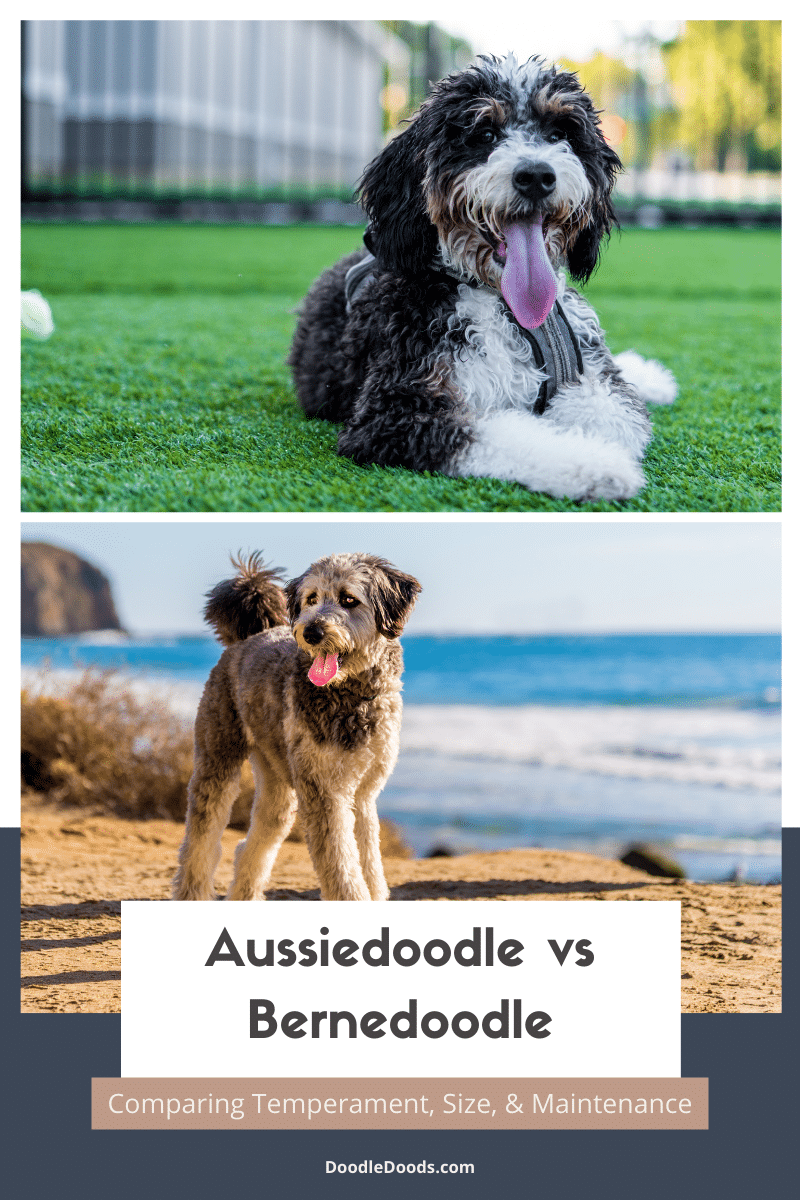If you’re familiar with Doodles – and how could you not be – you’ll know that these “designer dogs” are gaining popularity year after year. Sheepadoodles are one such dog – intelligent, loving, and playful pups. They make great companions and wonderful family pets. However, the demand for these darling Old English Sheepdog-Poodle crosses is often reflected in their price. In this article we discuss Sheepadoodle price, pricing factors, and ongoing costs.
Factors that Determine Sheepadoodle Puppy Price
Alongside the type of dog, other factors can play into how much a puppy will set you back. This means there can be quite a bit of price variation between very similar-looking pups. A Sheepadoodle can be anywhere between $1,000 and $3,500, placing them in the mid-range compared to other Doodles. Exactly where they do sit will depend on one or more of the following:
Genetic Guarantees
The better breeders are driven to not just produce the healthiest and happiest of puppies, but to improve overall Sheepadoodle breeding lines. Sound like a lot of work? It really is. Such facilities test parent pups for every type of canine illness linked to their breed and their ancestor breeds. This helps eliminate the risk of hereditary diseases. However, these kinds of genetic health tests are very costly, which is reflected in the puppy price tag.
The benefit of paying more for your puppy is that you will save $$$s in vet bills down the line. Moreover, many breeding facilities offer something called a health guarantee with the purchase of their pups. This is a contract basically stating that if some kind of hereditary condition is present, they will either switch out the puppy for another one or refund the buyer what they paid for the dog. If a breeder is willing to risk their profits in this way, you know they have confidence in their animals.
Location
While Sheepadoodles are ever more available from breeders across the country, the specific location of a facility can also significantly impact how much they are charging for their puppies. This has to do with the scarcity principle – where there is high demand but low numbers of breeders, and they can essentially pick their price. However, it’s also to do with the cost of caring for the parent dogs and their offspring.
Some places, such as cities vs. rural areas, have a higher cost of living, which carries over to dog food, accessories, and more. So, some breeders charge their customers more simply because their output is more. If the places near you are charging a little too much, you could try shopping around. Remember, though, that you will have to factor transport costs into the initial price of the dog. These can rack up quickly, especially when air travel and flight nannying is involved.
Breeder Stock
When it comes to breeding animals, it’s not just the cost of testing that will put people out of pocket. The dogs themselves tend to go for a chunk of change, more so because they are not spayed. With many breeders putting a neuter clause in their purchasing contract (for both reasons of health and to help halt bad breeding practices), getting hold of such pups is definitely not easy.
For first-generation Doods, the parents will need to be AKC or CKC registered and will likely cost around $1,000 to $2,000. You’ll notice that the pedigree parents are cheaper than their offspring. So, later generations of Sheepadoodle (ones with Sheepadoodle parents) are liable to cost more. Another reason is that there are certain guarantees breeders can make about these dogs in terms of coat or temperament, for instance.
Demand
As touched on above, low supply and high demand can greatly affect puppy prices. This is probably how they got so high in the first place for certain types of Doodles. Breeders are, after all, in the money-making business. So they are going to take advantage of supply and demand when setting their prices.
The good news for you, though, is that Sheepadoodles are fairly popular (for very good reason, we feel), and that means that a good number of breeders are now offering them. This does drive down the price somewhat. Especially considering they still haven’t reached the popularity levels of the more well-known Goldendoodles and Cockapoos. When they get to this stage, the price can (and usually does) rise once again.
Size
While it may be logical to assume that the larger the dog, the bigger the price tag, for Doods such as the Sheepadoodle, the reverse is often more accurate. Smaller Sheepas are more in demand, not just because of the convenience of having a little pup but also because they are more unique. It takes a good deal of knowledge and multiple generations of breeding to create diminutive hounds from larger parents with their health still intact, which means they are much harder work.
For all of these reasons and more, even though the demand is there, there are far fewer smaller Sheepadoodles about. This allows breeders to virtually name their price. However, on a more positive note, the initial output will likely be balanced out by the lower cost of caring for a smaller dog over a larger one. They require less food, and accessories for littler pups are generally cheaper, as is grooming.
Coat Type & Color
Colors and coat patterns can be another reason prices for these dogs fluctuate. As you might assume, more common variations tend to be cheaper. Sheepadoodles are most often seen in different combinations of black and white or grey and white as per their Old English Sheepdog genes. However, rarer coat colors such as shades of reds and golds and even merle are possible. They just take a bit more work on the part of the breeder. Plus, merle coats are risky with any canine as they are linked to genetic defects.
Coat type can also play a part. Doodles are often sought after for their “hypoallergenic coats,” which shed far less than others. This is inherited from the Poodle side. However, with two breeds in the mix, it’s equally likely a puppy will end up with their non-Poodle parent’s coat type. In this case, the Old English Sheepdog coat, which does shed. Or they could get something in the middle. People will often pay more for a guaranteed non-shed coat, which means Sheepas with other coat types will usually be less expensive.
Breeder Reputation
The longer a breeding facility has been in operation, the more time it has had to learn and hone its skills. Such breeders have also had time to improve the bloodlines of their parent pups as they are likely breeding the children or even grandchildren of their original animals. What this means for the buyer is a greater guarantee of specific traits and features of the dogs, as well as more of a chance of purchasing a healthy puppy.
Aside from this excellent quality control, such places have likely also gone on to offer extended services such as puppy socialization or early training. They might also be able to provide recommendations for food, accessories, boarding kennels, groomers, and much more. Puppies from such places will obviously be more, but a buyer, especially a newbie pet owner, can benefit enormously from such a wealth of experience.
Different Types of Sheepadoodle Breeders and How Price Varies
When done correctly, breeding Doodles can be both expensive and time-intensive. This means that you very much get what you pay for when you purchase a puppy from any kind of breeder. If you see someone offering pups at suspiciously low prices, then chances are they are not on the up and up. It may just be that they live in a cheaper region or have less demand for their dogs, but it certainly pays to do a little research.
You could likely encounter three different kinds of breeders:
Professional Breeders
These are the gold-standard breeders, the ones that will be charging significantly more for their dogs because of all the work they have put into ensuring they are in the best possible health and that they have a happy, family-friendly temperament to boot. You will recognize a professional breeder from their website, their social media presence, and the many positive reviews from happy puppy parents.
Backyard Breeders
Backyard breeders can sometimes be a little difficult to distinguish from professional ones. This is mainly because they will have an obvious affection for their breeding animals, which are likely their loving family pets. However, these facilities have far less expertise in that they are probably just looking to make some money on the side. Therefore their parent pups are unlikely to be health tested, among other things.
Puppy Mills
Puppy mills are the real villains of the dog breeding world. Driven by profit, these usually large-scale operations, care not one whit for their animals beyond the fact that they make them money. Both parent dogs and puppies won’t be tested or cared for correctly. They are often raised and kept in very basic conditions with the bare minimum they need to serve and keep breeding. You should avoid these at all costs!
Sheepadoodle Costs of Ownership
The price of your puppy is definitely something you will want to think about. Understandably, Doodles are not cheap dogs. Before committing yourself, you will also need to consider the ongoing cost of pet ownership, including vet fees and the expense of their training and care.
Food and Treats
High-quality food is absolutely essential for keeping your pet in tip-top condition. We like protein-rich kibbles such as those included in our list of best foods for Sheepadoodles. These are nutritionally balanced, containing everything your dog needs for a happy, healthy life. With such a large dog, you could be looking at spending around $400 a year on this. Treats will likely set you back another $200.
Training and Boarding
The right kind of training and socialization is essential for successful dog ownership. You need to get your pup ready to deal with strange people, animals, and situations and ensure they know how to behave with each. If you are a puppy pro, you can likely handle this yourself. If not, you will have to factor in training costs at $100+. Then if you can’t take your pet with you, holiday boarding for larger dogs is about $100-$150 a night.
Vet Visits
Getting a puppy in great condition in the first place will save you a great deal of money on veterinary costs. However, you will still need to think about taking your dog for regular checkups to ensure everything continues to function well. You can expect to set aside more for this in the early (for immunization) and later (for aging issues) years but around $250 a year is a good place to begin.
Grooming
Doodles with a curly Poodle coat are notoriously hard to keep well-groomed – especially when they are on the larger side. With the best will in the world, you might still have to take your pooch for regular trips to the groomers, and this might be as much as $80-$120 per groom. Keep these expenses low by taking good care of your pal’s coat in between with the right brushes, shampoos, and regular haircuts too.
Other Costs
Aside from all of these, there are a whole bunch of other things you may need to pay out for. Some of these will be one-offs, while others may be ongoing. For instance, you will need to get your four-legged friend items like food bowls, a leash, and collar (or harness), a crate, a bed, toys, and more. Check out our dedicated article for a comprehensive list of everything you might need for your new puppy.
Where Can you Buy a Sheepadoodle?
So you know by now that you are going to want to source a responsible breeder for your puppy. However, it can be hard to know where to start with so many out there. The best thing to do is to either reach out to existing Doodle owners for recommendations or browse through trusted sites (like this one!).
Always make sure to thoroughly sift through all the information provided on the website and check reviews on third-party sites, so you know just what to expect. Here’s our very own Sheepadoodle breeder directory based on research and reviews if you want to check out whether there’s a facility in your local area.
Adopting a Sheepadoodle
An alternative to buying a Sheepadoodle is adopting a (usually adult) dog from a shelter or rescue center. Despite having to shell out for adoption fees, among other things, this could be a much cheaper option. You also have the satisfaction of knowing that you are providing a poor, neglected pup with a loving home – who doesn’t want that?
Just be aware that these dogs are very rarely seen in such situations, so you might not actually be able to get a Sheepadoodle this way. With the amount they cost and the research needed before taking on a puppy, these dogs, more often than not, end up in their forever home right from the start. If not, they may have health or behavioral issues, which is why the owner gave them up.
Neither of these is a reason not to adopt a good dog that needs a good home. Both can be fixed with the right kind of care and attention – and it definitely is a worthy cause. You just should be aware of what you are taking on. When a dog’s background is a complete unknown, you have to be more prepared to deal with the unexpected.
Frequently Asked Questions on Sheepadoodles
Why are Sheepadoodles expensive?
Compared to certain other Doodles, Sheepadoodles are not considered expensive. However, when compared to other hybrid dogs (and in some cases pedigrees too), you might decide that they definitely are. The reason for this is generally to do with how much work a facility needs to put into producing these gorgeous pups, as well as the associated costs of breeding dogs and raising puppies.
If you have the space in your home (and in your heart) for a lovely Sheepadoodle, you are likely wondering a few things about these Doods – how big will they get? What behavior problems might you expect?…
One of the most common concerns for potential pet parents is just how much they may have to pay to get their dog and the amount they will need to set aside for their care. Hopefully, the details included here have gone some way towards addressing these concerns so you can make an informed decision about whether or not to add a Sheepadoodle to your family.
Learn How to Care for Your Doodle Puppy!

Perfect for first-time Doodle parents, get ALL your questions answered, including questions new Doodle parents don’t even think to ask.
Plus, get $700 worth of Bonus Materials for FREE, including:- Doodle Parenthood Community and Support Group ($190 value)
- Doodle Puppy Growth Tracker ($20 value)
- EMERGENCY Cheatsheet: When To Call The Vet Immediately ($50 value)
- HELP! Button ($145 value)
- And SO MUCH MORE!

